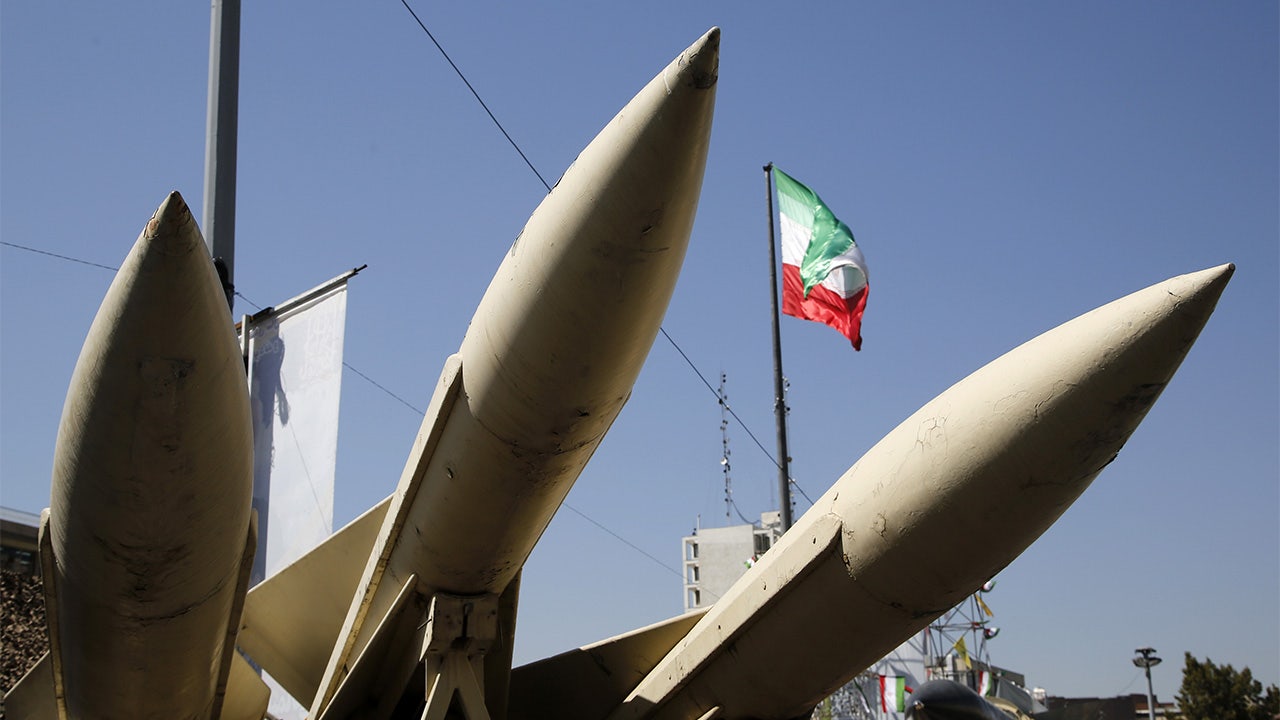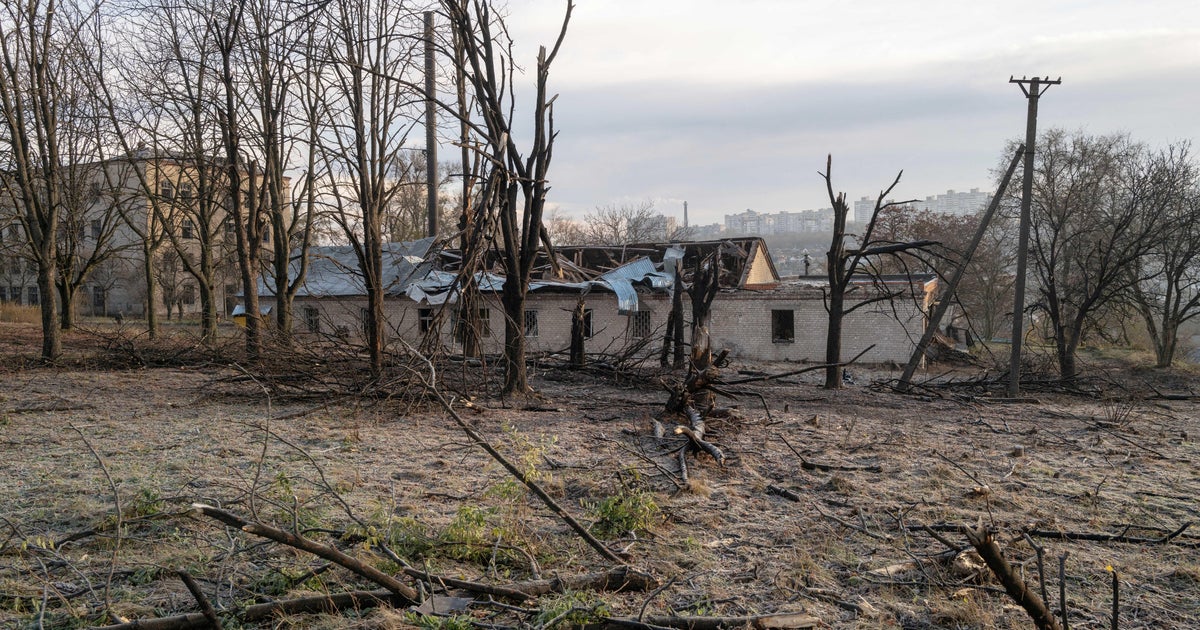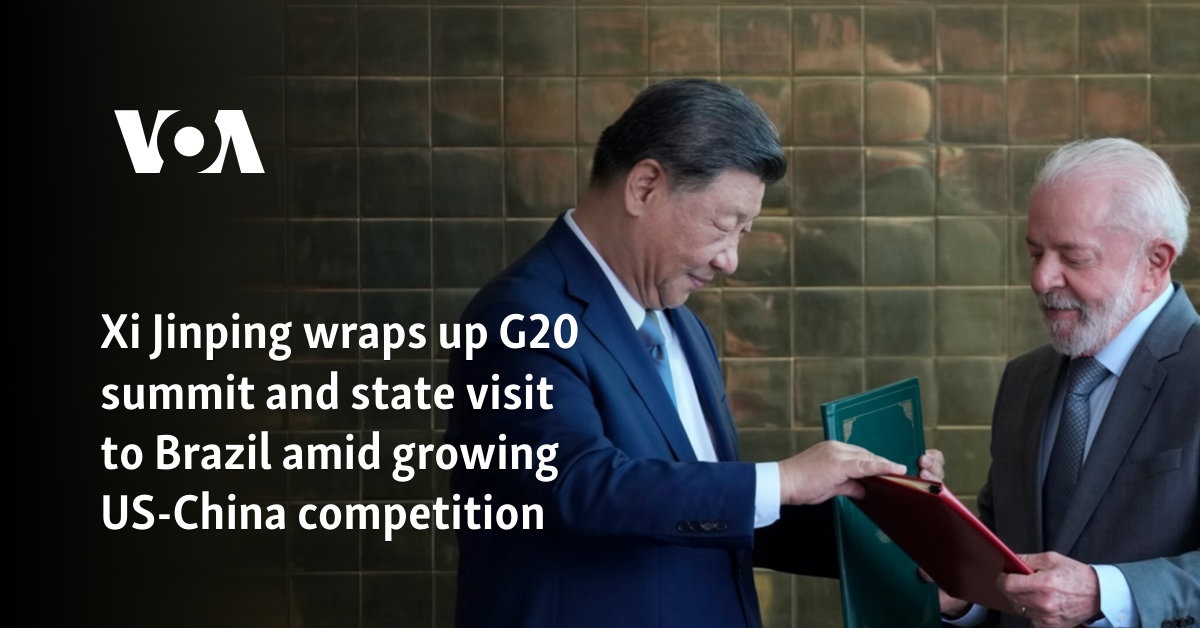World
U.S. Supreme Court limits Jan. 6 obstruction charge, potentially affecting Trump case | CBC News

The U.S. Supreme Court gave a boost on Friday to a Pennsylvania man who challenged an obstruction charge brought against him concerning the Jan. 6, 2021, attack on the Capitol.
It’s a ruling that has potential implications for the federal criminal case against former U.S. president Donald Trump for trying to undo his 2020 election loss.
The justices ruled 6-3 to throw out a lower court’s decision that had allowed a charge against defendant Joseph Fischer of corruptly obstructing an official proceeding, that is, the congressional certification of President Joe Biden’s victory over Trump that the rioters sought to prevent. The justices directed the lower court to reconsider the matter.
Fischer, who was an officer with the North Cornwall township police in Pennsylvania at the time of the attack, was accused by prosecutors of charging at police guarding a Capitol entrance during the Jan. 6 riot. He had challenged the obstruction charge, which federal prosecutors brought against him and hundreds of others — including Trump — in Jan. 6-related cases.
Friday’s ruling was a setback for the U.S. Justice Department and Biden’s administration and a potential benefit for Trump.
The charge of obstructing an official proceeding, which the 2002 Sarbanes-Oxley Act enacted in response to the financial scandal that brought down Enron Corp., must include proof that defendants tried to tamper with or destroy documents. Only some of the people who violently attacked the Capitol fall into that category.
Federal prosecutors estimate that about 250 of the roughly 1,400 people charged in the Capitol attack by Trump supporters could be impacted by the ruling.
According to Justice Department data, about 50 Jan. 6 defendants were convicted and sentenced only on the obstruction charge, with no other felony. Of those, about half are currently serving a sentence in prison — representing less than two per cent of all charged cases.
The charge carries a sentence of up to 20 years in prison, though Jan. 6 defendants convicted of obstruction have received far lesser sentences.
Immunity ruling looms
Trump, the Republican candidate challenging Biden in the Nov. 5 U.S. election, was hit with the obstruction charge as part of a criminal indictment brought last year by special counsel Jack Smith.
In August 2023, Smith brought four federal criminal counts against Trump in the election subversion case: conspiring to defraud the United States; corruptly obstructing an official proceeding and conspiring to do so; and conspiring against the right of Americans to vote.
Some of Trump’s charges were related not to the Capitol riot but to an alleged scheme to install false electors in certain battleground states.
WATCH l Get caught up on the immunity case ahead of expected July 1 opinion:
After a crucial hearing, U.S. Supreme Court justices are weighing arguments for and against Donald Trump’s claims of presidential immunity from 2020 election interference charges, but a ruling will take time.
Chief Justice John Roberts wrote the Fischer ruling, joined by fellow conservative justices Clarence Thomas, Samuel Alito, Neil Gorsuch and Brett Kavanaugh, as well as liberal Justice Ketanji Brown Jackson. Conservative Justice Amy Coney Barrett wrote a dissent that was joined by liberal justices Sonia Sotomayor and Elena Kagan.
Roberts rejected the Justice Department’s more expansive reading of what constitutes obstruction, calling it “a novel interpretation [that] would criminalize a broad swath of prosaic conduct, exposing activists and lobbyists alike to decades in prison.”
The Supreme Court is expected to deliver its opinion on Monday on the scope of presidential immunity from criminal prosecution, which could impact some of the charges Trump has faced in four separate criminal indictments. The court’s conservative justices signalled support during April arguments for U.S. presidents having some level of immunity from criminal charges for certain acts taken in office.
Attorney general disappointed by ruling
Attorney General Merrick Garland criticized Friday’s ruling, characterizing Jan. 6, 2021 as “an unprecedented attack on the cornerstone of our system of government.”
“There are no cases in which the department charged a Jan. 6 defendant only with the offence at issue in Fischer,” said Garland. “For the cases affected by today’s decision, the department will take appropriate steps to comply with the court’s ruling.”
Two of the Justice Department’s most prominent Jan. 6 cases took aim at leaders from the extremist Oath Keepers and the Proud Boys. In separate trials, Oath Keepers founder Stewart Rhodes and Proud Boys former chairman Enrique Tarrio, along with their co-conspirators, were convicted of obstructing an official proceeding, among a host of other charges.
Trump has hinted at pardons or commutations of sentences for at least some defendants in Jan. 6, 2021, cases. At campaign rallies, he has referred to the protesters as “patriots” while Trump loyalist and high-ranking House member Elise Stefanik has referred to them as political prisoners.
“Just [Thursday] night, Trump again defended Jan. 6 and the insurrectionists who violently assaulted law enforcement officers and tried to prevent the peaceful transfer of power,” Biden said in a statement, referring to comments made during their unprecedented early presidential debate.
WATCH l Trump again hedges on accepting election results:
Former U.S. president Donald Trump was repeatedly asked during a debate in Atlanta that aired on CNN if he will accept the results of the 2024 presidential election. During his reply, Trump said he would — on certain conditions — before claiming he wasn’t going to run initially. ‘I would be very happy to be someplace else,’ he said.
Fischer was accused by prosecutors of getting inside the Capitol building and pressing up against an officer’s riot shield as police officers attempted to clear rioters.
He remained in the Capitol for four minutes before police pushed him out, they said. Fischer has been awaiting trial on six other criminal counts, including assaulting or impeding officers and civil disorder, while his challenge to his obstruction charge has proceeded.
U.S. District Judge Carl Nichols, a Trump appointee, granted Fischer’s request to dismiss the obstruction charge, ruling it applies only to defendants who tampered with evidence. The U.S. Court of Appeals for the District of Columbia Circuit reversed that decision, prompting Fischer’s appeal to the Supreme Court.
The legal issue in the case involved how two parts of the obstruction law fit together. The first provision prohibits obstructing an official proceeding by destroying “a record, document or other object.” The second part makes it a crime to “otherwise obstruct” an official proceeding.
Read the court’s Fischer opinion:










